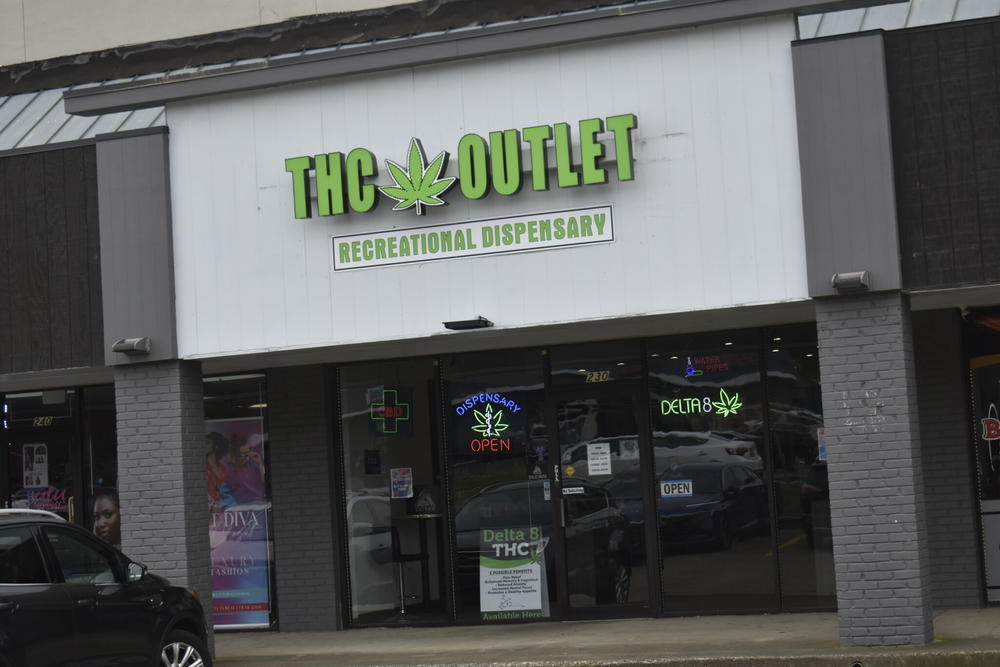
Section Branding
Header Content
Georgia lawmakers try to wrap heads around regulating hemp-based recreational products
Primary Content

In the final days of this year’s legislative session, a bill aimed at regulating hemp products fell short after lawmakers tried to insert language banning Delta-8 THC and similar products that are often used recreationally.
House Bill 458, sponsored by Ashburn Republican Rep. Clay Pirkle, aims to restrict sales of these products to anyone younger than 21 and set testing requirements to weed out contaminants. The proposal remains alive for 2024, the second year of a two-year legislative cycle.
Sarah Nicholls, founder of SJ Labs, an independent cannabis testing facility in Macon, said she supports these requirements because it’s impossible for a consumer to know what is in the Delta-8 selection in the average Georgia head shop or gas station.
“I don’t know whether it has heavy metals present, which is pretty common for vape carts, because they’re not getting a test,” she said. “I don’t know whether they have pesticides present or not because they’re not getting a test, and then people are inhaling them.”
Nicholls said vendors in other states send products that don’t meet their regulations to Georgia. In states with regulated recreational products, producers must meet safety guidelines and label their packages so people know what they are consuming and what kind of dose they should take.
Pirkle said he was an unlikely candidate to support the bill – he is no fan of marijuana and has voted against hemp measures in the past. But he said he views it as an important consumer protection measure.
“The General Assembly said that CBD products should be available to consumers, and we just don’t have the guardrails, I really want significant guardrails in place regarding testing and making sure that the product is as advertised so the consumer can make a choice,” he said.
A similar Senate bill was sidelined in dramatic fashion in the full body after Rome Republican Sen. Chuck Hufstetler offered a last-minute amendment that opponents said would have banned Delta-8.
In a Senate Regulated Industries Committee hearing on March 23, with only three business days before the end of the session, Athens Republican andCommittee Chair Bill Cowsert introduced a substitute to the bill with a similar purpose.
Cowsert said the new plan would add “a prohibition on the sale of products containing Delta-8 THC, Delta-9 THC or any other derivative of THC” while still allowing for the sale of CBD and similar products.
The Georgia Poison Center reported 191 calls related to synthetic THC since 2018, with 14 last year. Of those, 53 were in response to people 17 and younger and 130 were for adults.
The center reported 2,251 calls coded as THC during the same time, with 801 last year. Of those, 1,238 were related to minors and 932 were related to adults.
The center notes that their numbers only reflect what was reported to them, and it is not mandatory to report all poisonings.
Several lawmakers said they have heard from constituents whose friends or family have had bad experiences after consuming THC products.
“There’s a real tough problem with the regulation of these things,” he said. “Many coming from out of the country or in other states without being properly labeled or identified what’s in them, and certainly many of them not being tested. So I believe that was sort of the intent of two original bills that were introduced through the Senate. One was limiting the sale of Delta-8 altogether and limiting the sale of these products to people under 21.”
Speaking at the March committee hearing, Rashaun Bush of Savannah-based hemp product retailer Lilu Farms, said the committee substitute would kneecap businesses like his.
“It’s going to put thousands of businesses out of business,” he said.
“In other words, all these CBD businesses and all your franchises are only making their living by selling Delta-8 or Delta-9 products?” Cowsert asked.
“No, they’ll be making their living outside the state of Georgia if this passes,” Bush said.
“Is that all the products you guys are selling?” said Cowsert. “I thought you had all kinds of derivatives of –”
“No, we have other types,” said Bush. “But you have to understand that there’s traces of all of these in the products. The only way to not have a trace of any of this in a full CBD product is to make your products from isolate. That’s going to be an extra process for the only processor in the state, to make isolate. Once he makes isolate, they’re not going to do it for free. That’s going to increase the cost of the product. And to be quite honest, hemp plants as a whole, with every cannabinoid there and present, is way more beneficial than taking bits and pieces away.”
Georgia Secretary of Agriculture Tyler Harper also expressed reservations about the committee substitute, saying it would contradict the federal definition of hemp and prevent the growing or selling of industrial hemp.
“Not only does it put us out of compliance with federal law, it would also make the plan that we have at the Department of Agriculture out of compliance with USDA, it also would basically completely eliminate the hemp program in the state of Georgia because it specifically speaks to Delta-9 THC,” he said.
“I think the underlying bill, the original bill that Chairman Pirkle had that passed the House, I think is definitely a good starting point and definitely a piece of legislation that puts us in the direction of allowing us to have a hemp industry in the state that works,” Harper added.
But the bill did not cross the finish line in any form before the final gavel slammed this year’s session to an end March 29.
“It was getting close to the end of session and the language in there was not fully vetted,” Pirkle said. “I feel like (Cowsert) wanted to make sure we had protection because he included most of my language about the under 21 purchase of these products, although he put the enforcement arm with the Department of Revenue, where I feel like it should have rested with the Department of Agriculture, I feel like he and I have the same goal, being consumer protection. We just went about it in a slightly different way.”
Pirkle said his primary goal was to provide consumer protection, but he would not be averse to a bill that went further.
“I absolutely do not want the psychoactive stuff being available in Georgia,” he said. “These things that cause harm to consumers, I can’t think anyone would be in favor of that. It is the guardrails, and if the language in my bill was not satisfactory, then I’d be amenable to the language that puts the guardrails up and protects the consumers.”
Know your hemp products
- THC, or tetrahydrocannabinol, is the chemical in marijuana that intoxicates users. The primary type of naturally occurring THC found in the cannabis plant is Delta-9 THC. It’s illegal on the federal level, but some states have legalized or decriminalized it for recreational use. Georgia is not one of those states.
- Hemp is a plant that is related to those that produce smokable marijuana, but it contains a small amount of THC. It has many industrial uses including textiles, plastics and biofuel.
- In 2018, Congress passed a law making it legal to grow hemp as long as it has a very small amount of Delta-9 THC. That opened a loophole for the sale of other forms of THC like Delta-8, which occur naturally in hemp and can produce a marijuana-like high but are not subject to federal restrictions. Several states have banned Delta-8, and others require products to be sold in licensed dispensaries.
- CBD or cannabidol is another product derived from hemp. It does not cause intoxication and is commonly sold for medicinal use as oils, gummies or pills. The U.S. Food and Drug Association has approved one form of CBD for treating rare seizure disorders, but most CBD products are not evaluated by the FDA.
- Federal law does not ban Delta-8 or other products that are derived from hemp, but some retailers sell products containing THC acetate ester, or THCO. This substance is derived from cannabinoids found in hemp, but it does not occur naturally in the plant. Because of this, the U.S. Justice Department says they do not fall under the definition of hemp and are controlled substances.
This story comes to GPB through a reporting partnership with Georgia Recorder.

